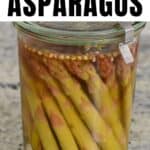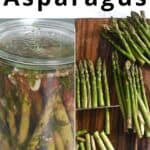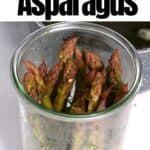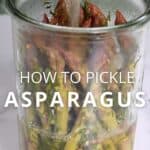This post may contain affiliate links. Please read our disclosure policy.
Are you ready to pickle to perfection? I know I am. But walk right on by the cucumbers and onions – we’re here to make asparagus pickles! Pickled asparagus is quick, healthy, and super easy to make.
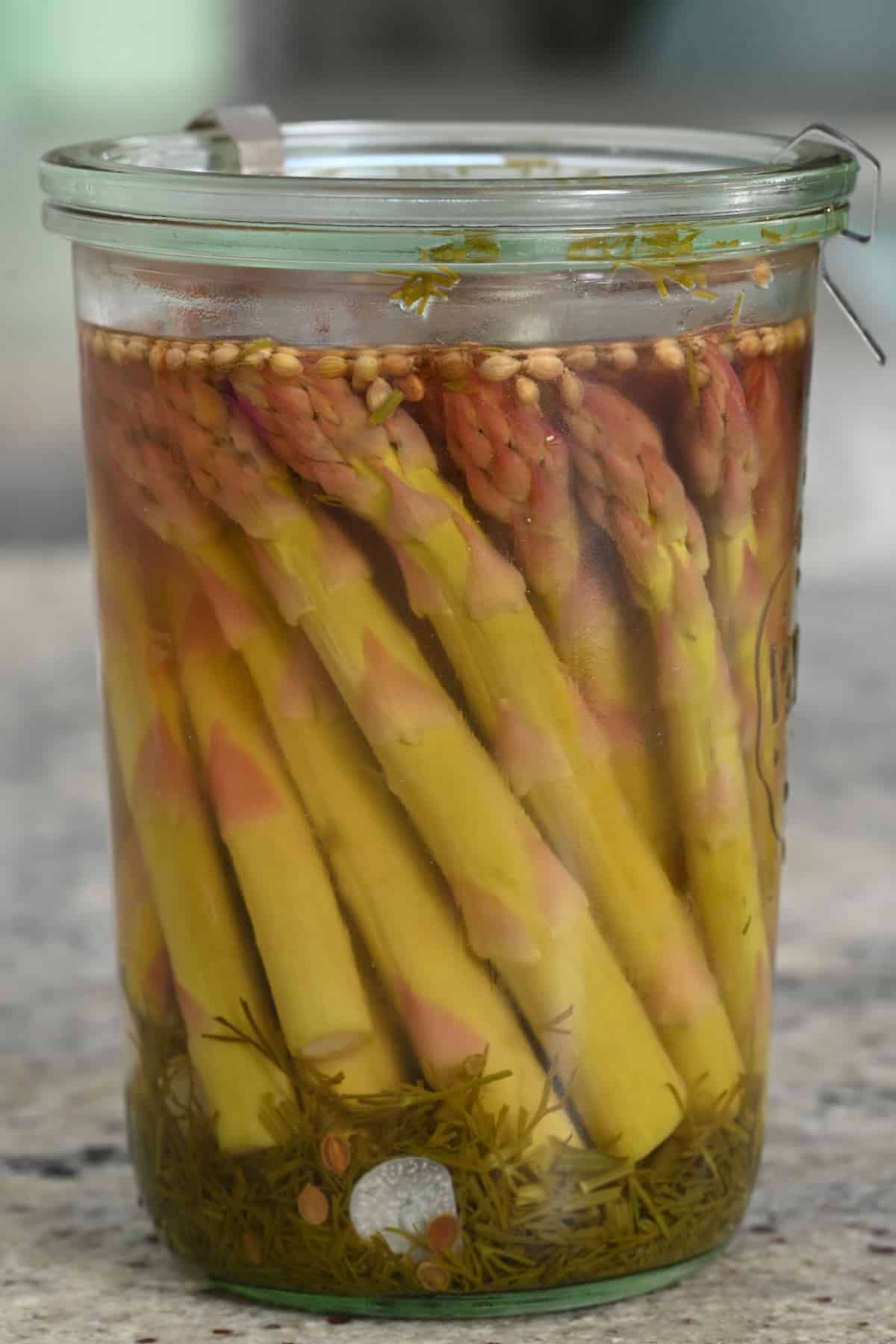
You might be asking yourself – really, pickled asparagus? It’s not as crazy as you think! Marinated asparagus in a jar gives these already flavorsome veggies an extra kick. Plus, you can eat them straight from the jar.
But if you have extra asparagus, you don’t have to pickle it all. Store asparagus in the refrigerator for up to 12 days, or freeze asparagus to keep it fresh for months. That way, you’ll always have some on hand for roasting, sautéing, or adding to your favorite dishes.
My pickled asparagus recipe can be done using two different methods that produce the same delicious result. Here, we’ll focus on the quick fridge method!
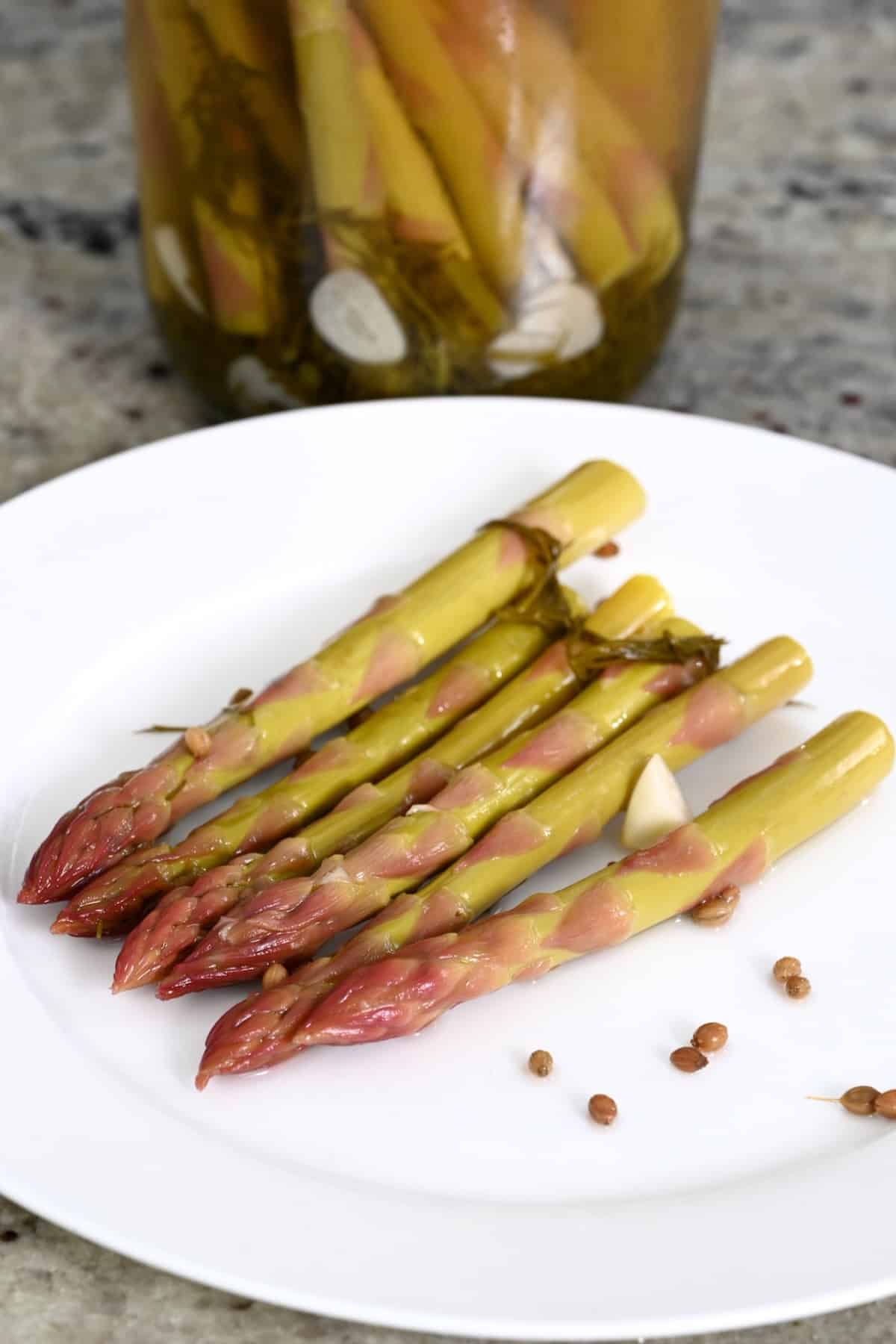
If you have a newfound love for this amazing vegetable, why not check out my guide on how to cook asparagus – I share six different easy methods to cook it to perfection.
Want to save this recipe?
The Ingredients
- Asparagus: Fresh asparagus should only be used for pickled asparagus recipes. Frozen and canned have extra water involved and could have extra ingredients added to help preserve them.
- Ice water: This needs to be super cold. Fill a bowl of cold water about halfway, then add plenty of ice. As the ice melts, it’ll keep the water chilled.
For the brine:
- White vinegar: Otherwise known as “distilled” or “spirit vinegar”, white vinegar is the core base of pickled asparagus brine.
- Water: The other ingredient of the brine that preserves asparagus pickles, the water will balance the pure acid of the vinegar.
- Granulated sugar: Use plain white granulated sugar or cane sugar – the crystals are small enough to dissolve quickly in the brine.
- Pickling salt: This is also known as “canning salt” or “preserving salt”. Pickling salt is similar to ordinary salt but doesn’t have any anti-caking agents which are usually added to commercial salt.
- For extra flavor: I used garlic cloves, coriander seeds, and fresh dill (or dill seeds). Though you can use whichever herbs and spices you prefer. For example, for a more spicy pickled asparagus, you could add a teaspoon of red pepper flakes or mustard seeds.
You’ll also need a 16 oz/500ml jar with a lid.
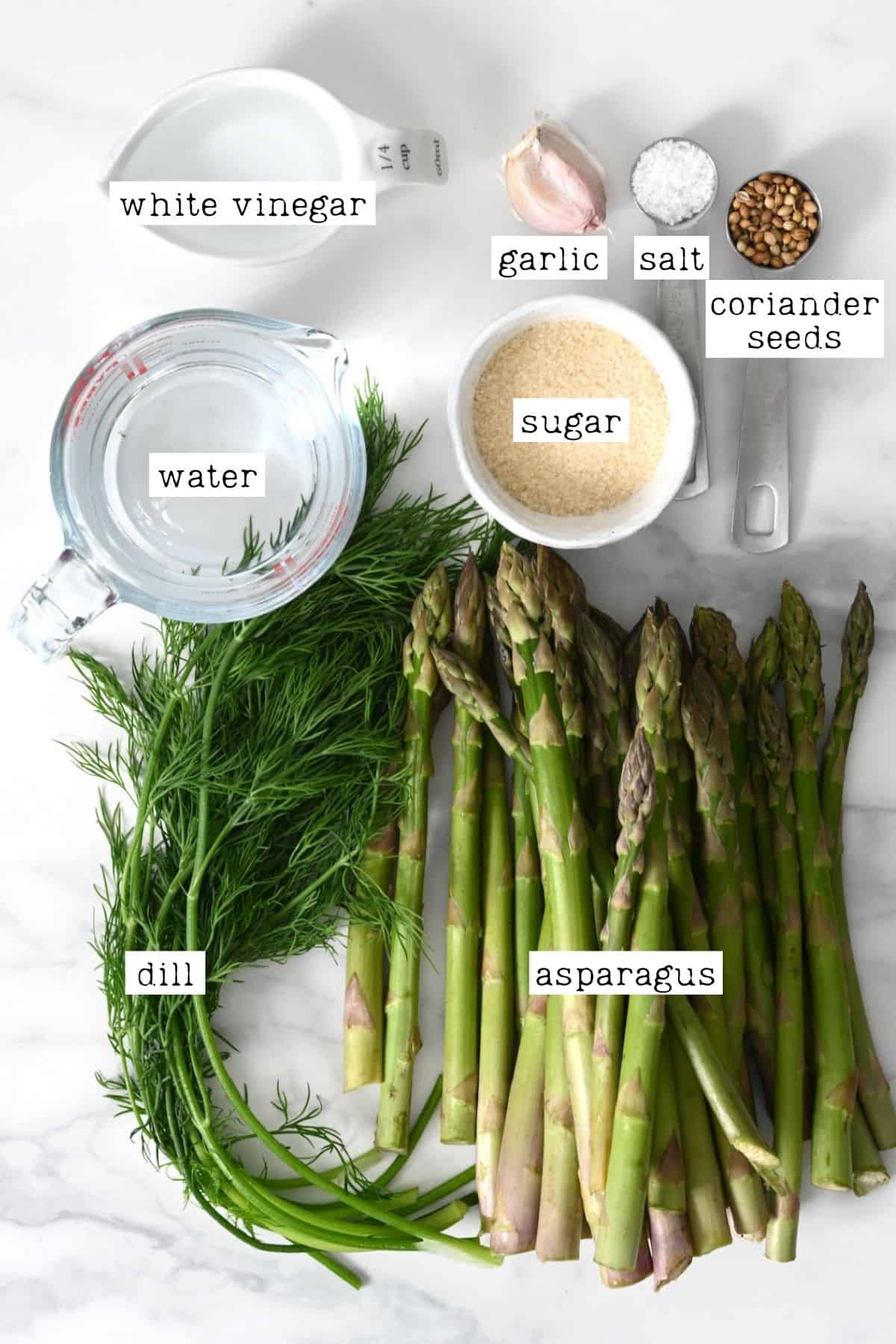
How to Pickle Asparagus
Making pickled asparagus isn’t as complicated as it seems. There are a few simple instructions to follow for this pickling recipe.
Prepare the Asparagus
Trim the woody ends of the asparagus, then cut again into identically sized spears. You should cut them just a little shorter than the inside height of your jar. In this way, they fit perfectly and are not crushed.
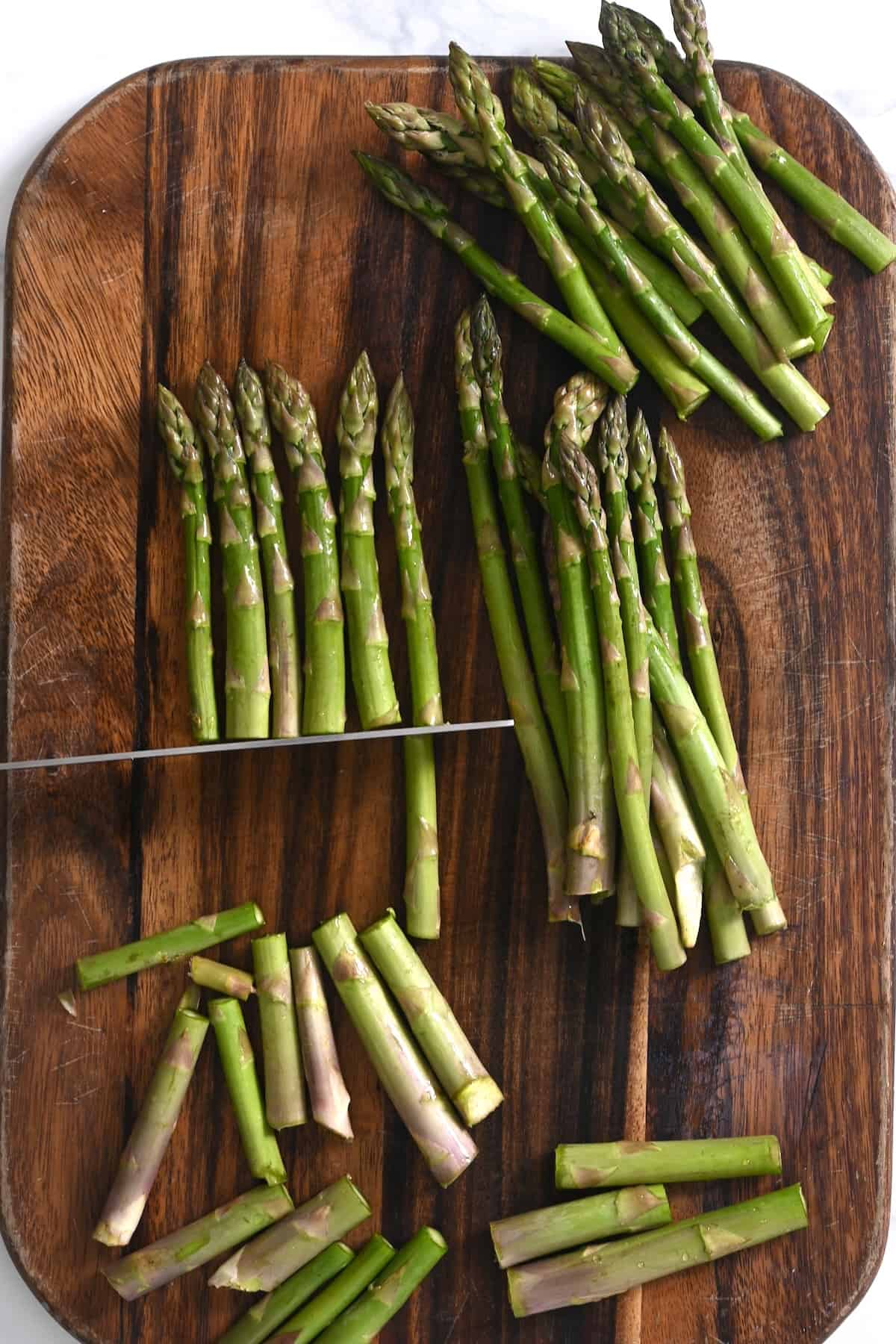
Chef’s Tip: Your leftover ends can be frozen and then added to soups, stir-fries, and salads.
Place the asparagus spears into a large bowl of ice water for 20 minutes.
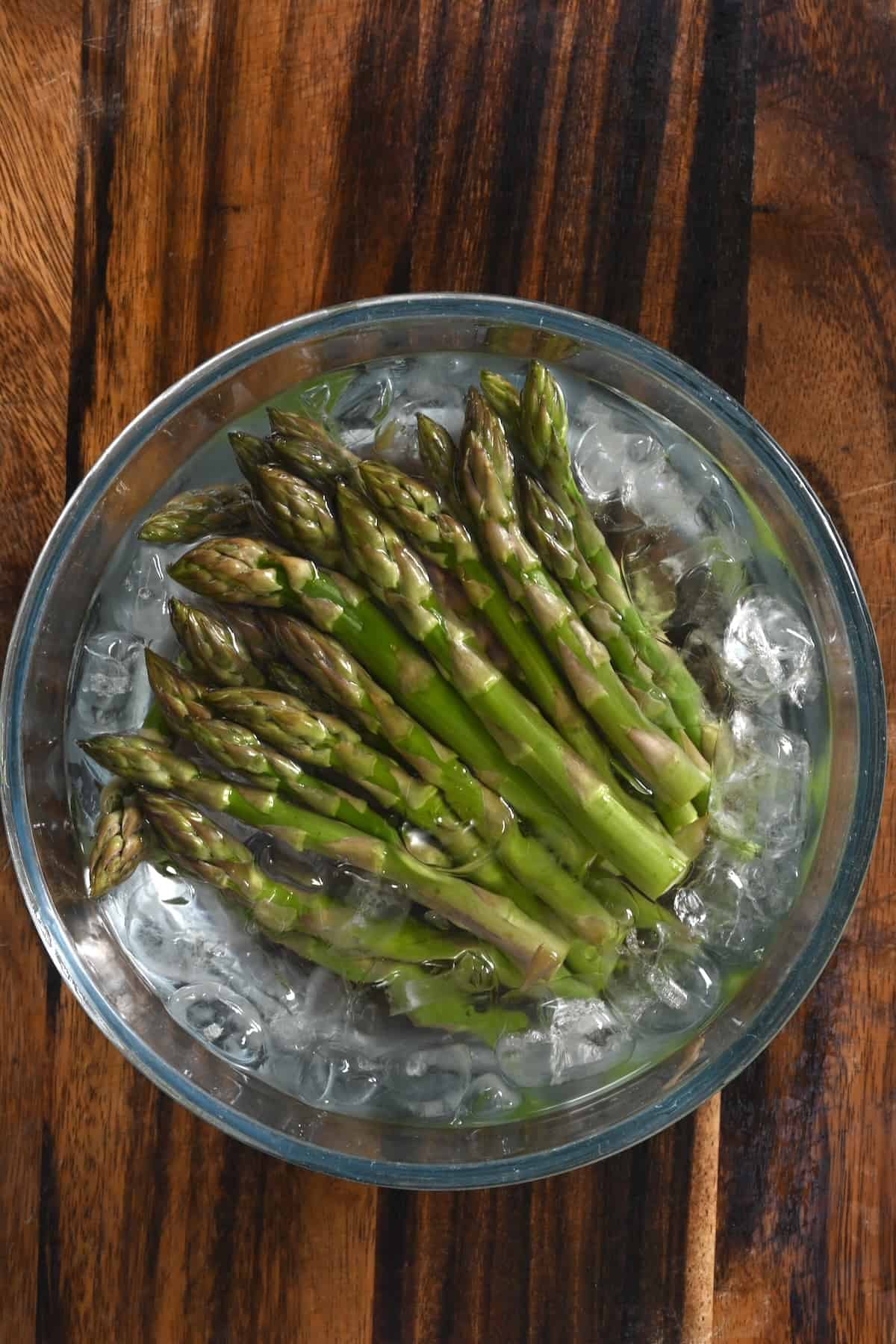
Sterilize Your Mason Jar
While the asparagus is sitting, you’ll need to clean and sterilize your mason jar.
Preheat the oven to 325ºF/160ºC. Wash the jar in hot, soapy water, rinsing it well. Then, take away all rubber, plastic, and other non-heatproof elements. Place the jar(s) onto a clean oven tray and heat for 10-15 minutes until dry.
Prepare the Brine
Thinly slice the garlic clove and chop the dill and other fresh herbs, if using. Set aside.
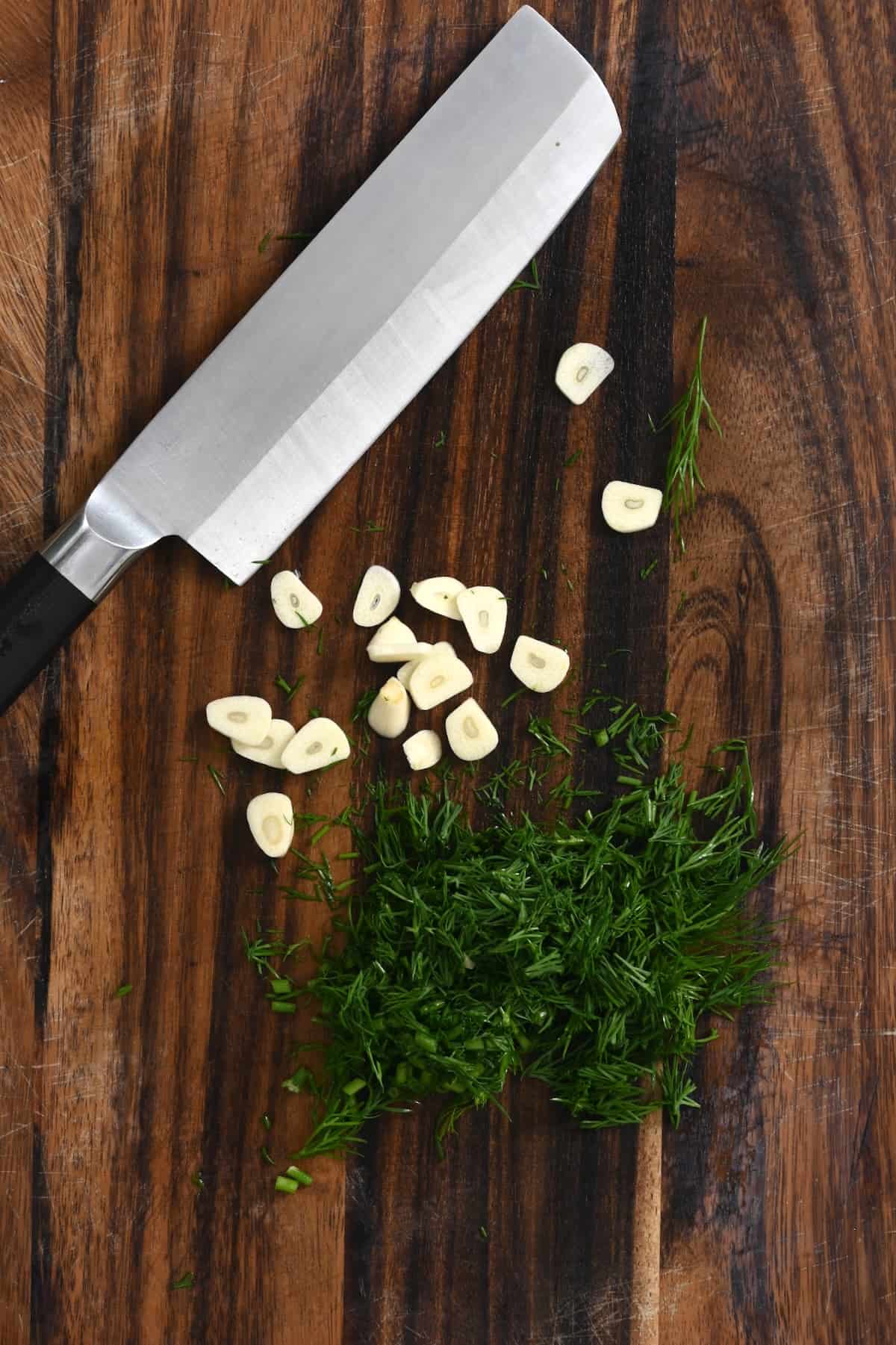
In a saucepan, mix the water, sugar, vinegar, and pickling salt and bring to a soft boil over medium-high heat. Reduce the heat and boil gently for 5 minutes. Stir occasionally to make sure the salt and sugar are dissolved.
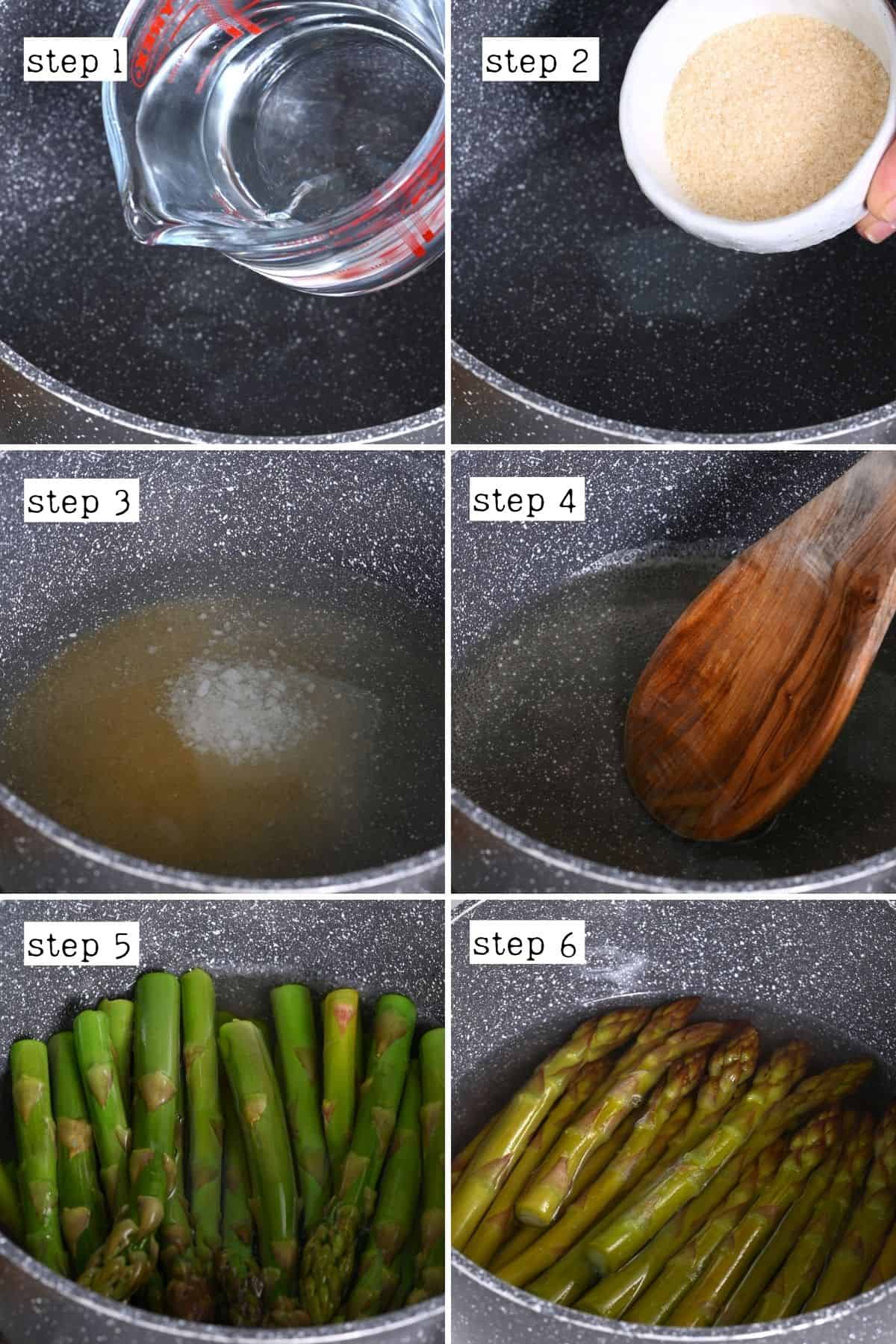
Add the asparagus spears and return to the boil. Boil for two minutes, then remove from the heat.
Note: The asparagus will change color – this is normal.
Add the dill, sliced garlic, and coriander seeds. Mix gently so you don’t break the asparagus spears.
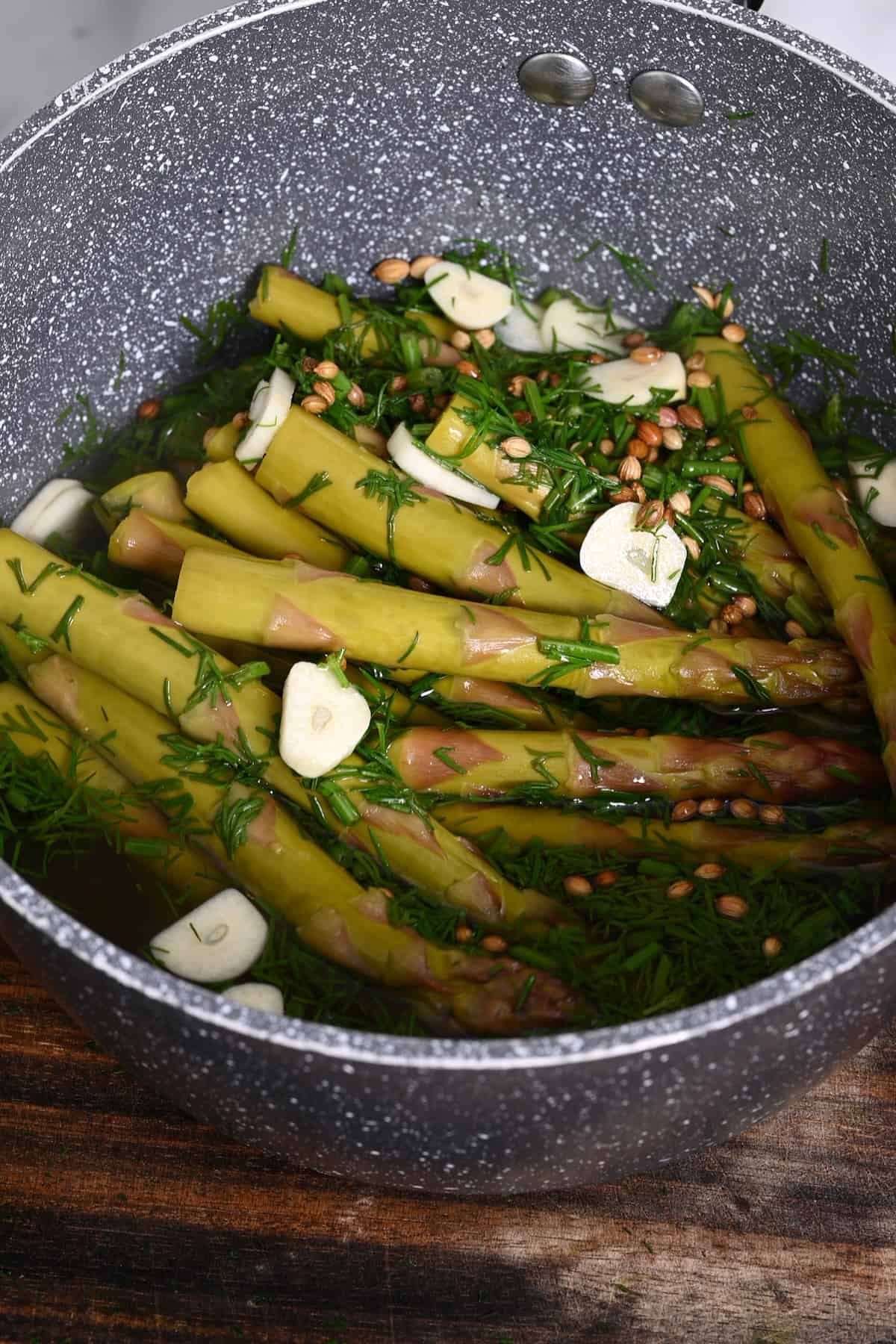
Pickle
Place your asparagus spears into the sterilized jar. Put as much of the dill and garlic into the jar as you can. Then, pour the brine/pickling liquid – leaving about an inch headspace at the top.
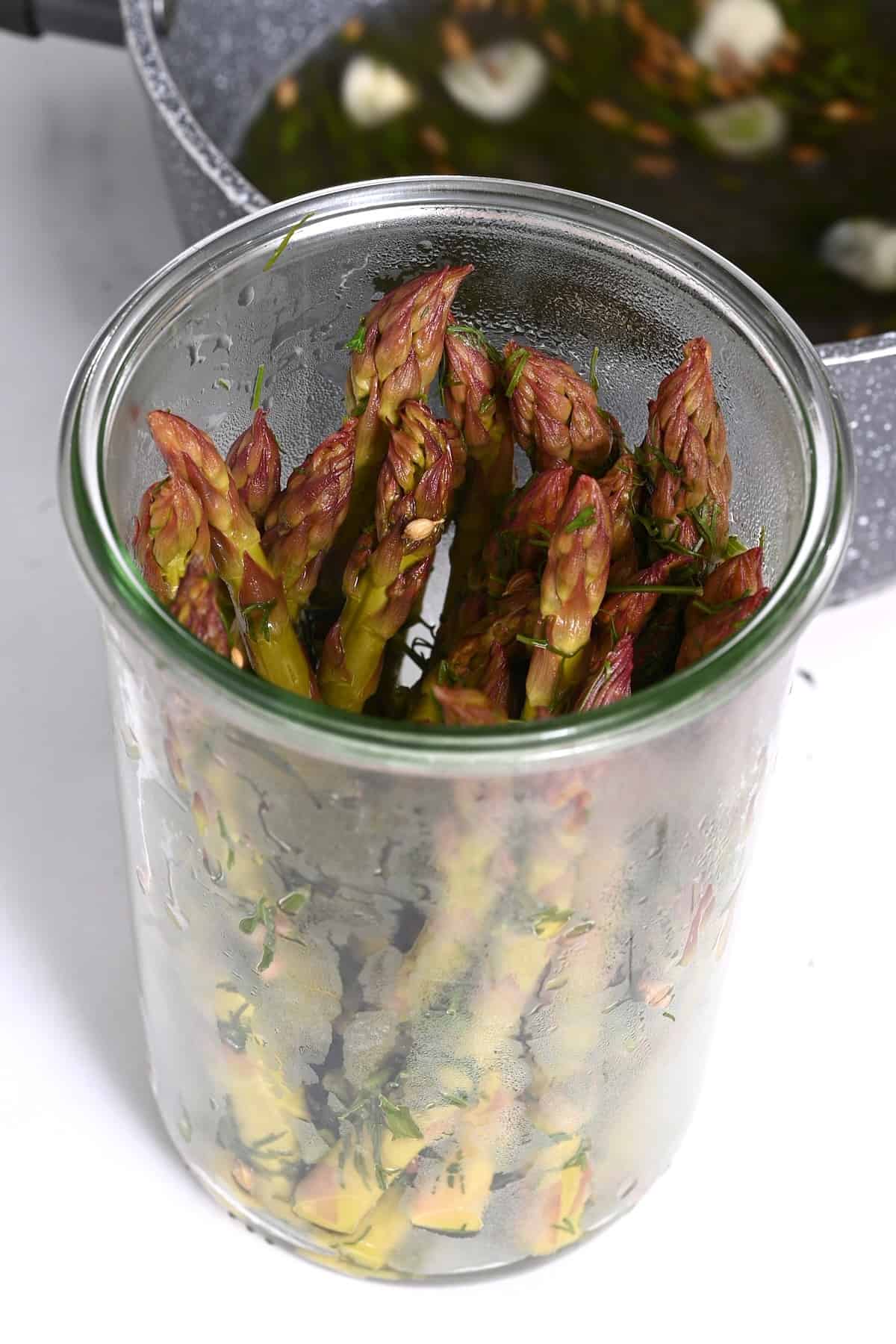
For the Quick Pickled Asparagus
Set aside to cool to room temperature, then cover and refrigerate for up to 4 weeks. I recommend waiting at least a few hours before it’s ready to eat – but you can eat straight away.
And voila, this is how to pickle asparagus!
If you want to water bath can this pickled asparagus recipe, follow the steps below for canning pickled asparagus.
How to Pick Asparagus: Water Bath Method
Top Tip: My Step-by-Step Guide to Water Bath Canning is a great way to learn the basics.
As soon as you’ve filled your jar with the brine, wipe the rim and tightly close the lid. Place the closed jar in a large pot or canner. Make sure it’s completely submerged in water.
How Long to Hot Water Bath Pickled Asparagus
Bring to a boil, then boil, covered, for 10 minutes. Then, remove the lid and wait five minutes before carefully removing the jar with the asparagus. Cool and store.
Keep in mind that the processing time will vary based on your altitude. So make sure to check my tutorial linked above for more tips.
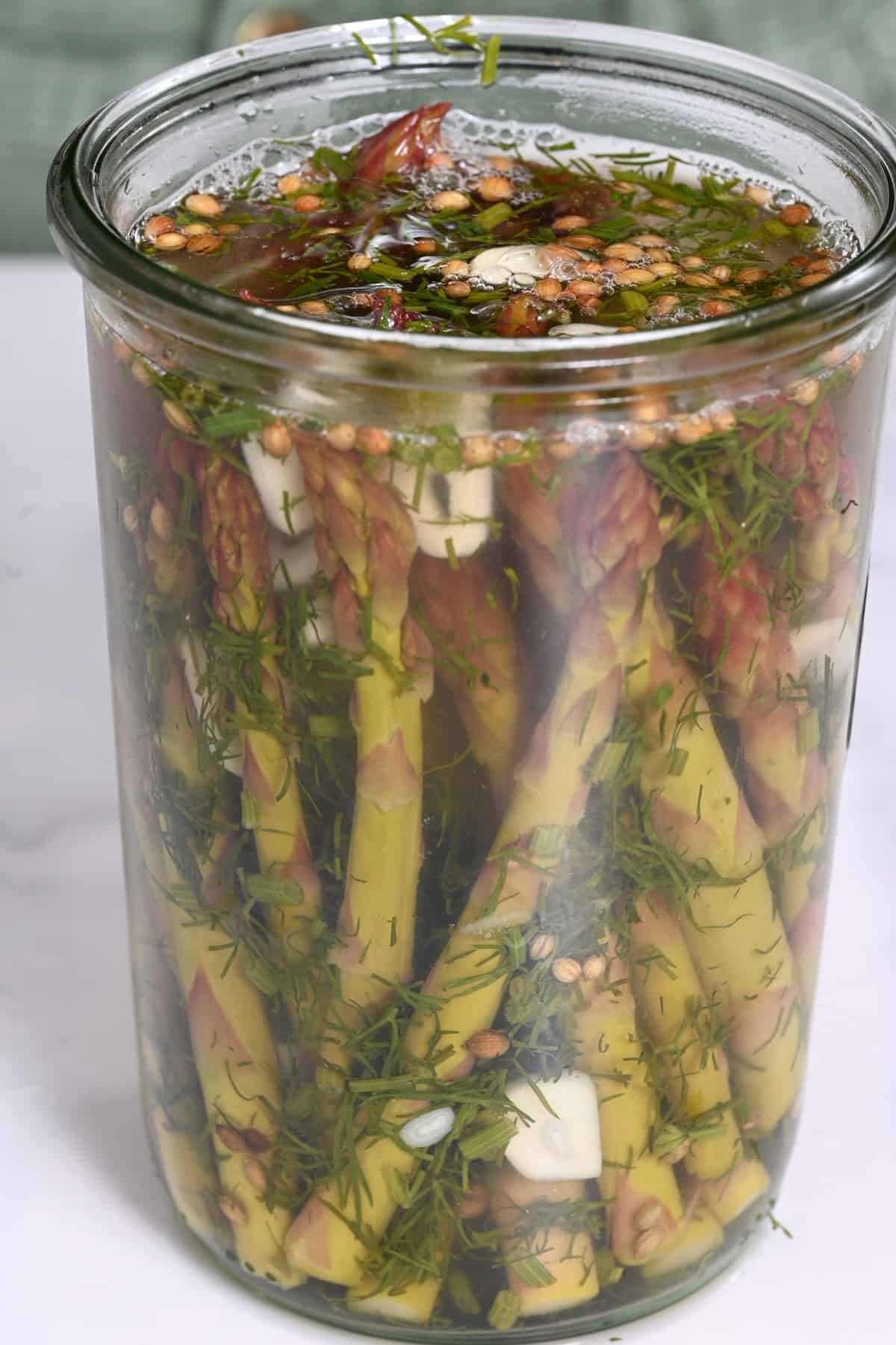
How to Use Pickled Asparagus
Add a little flavor and color to your meals by using this as a side dish. Use it to scoop up your favorite dip. I recommend my Roasted Garlic White Bean Dip, Peanut Dipping Sauce, or Simple Spinach Yoghurt Dip.
You can also add it to salads, soups, and omelets. Pickled asparagus is also a great accompaniment to roasted veggies. They are the perfect addition to cheese boards or charcuterie boards.
Use it as an appetizer drizzled with hot honey or garlic oil. Or, you can even use it in place of celery in a bloody mary.
Tips for Best Pickled Asparagus
- Insert the asparagus stalks into the bottom of the jar so they’re easy to remove without crushing the tips.
- To get tender-crisp asparagus stalks, make sure the brine is still hot when pouring it over the asparagus into the jar.
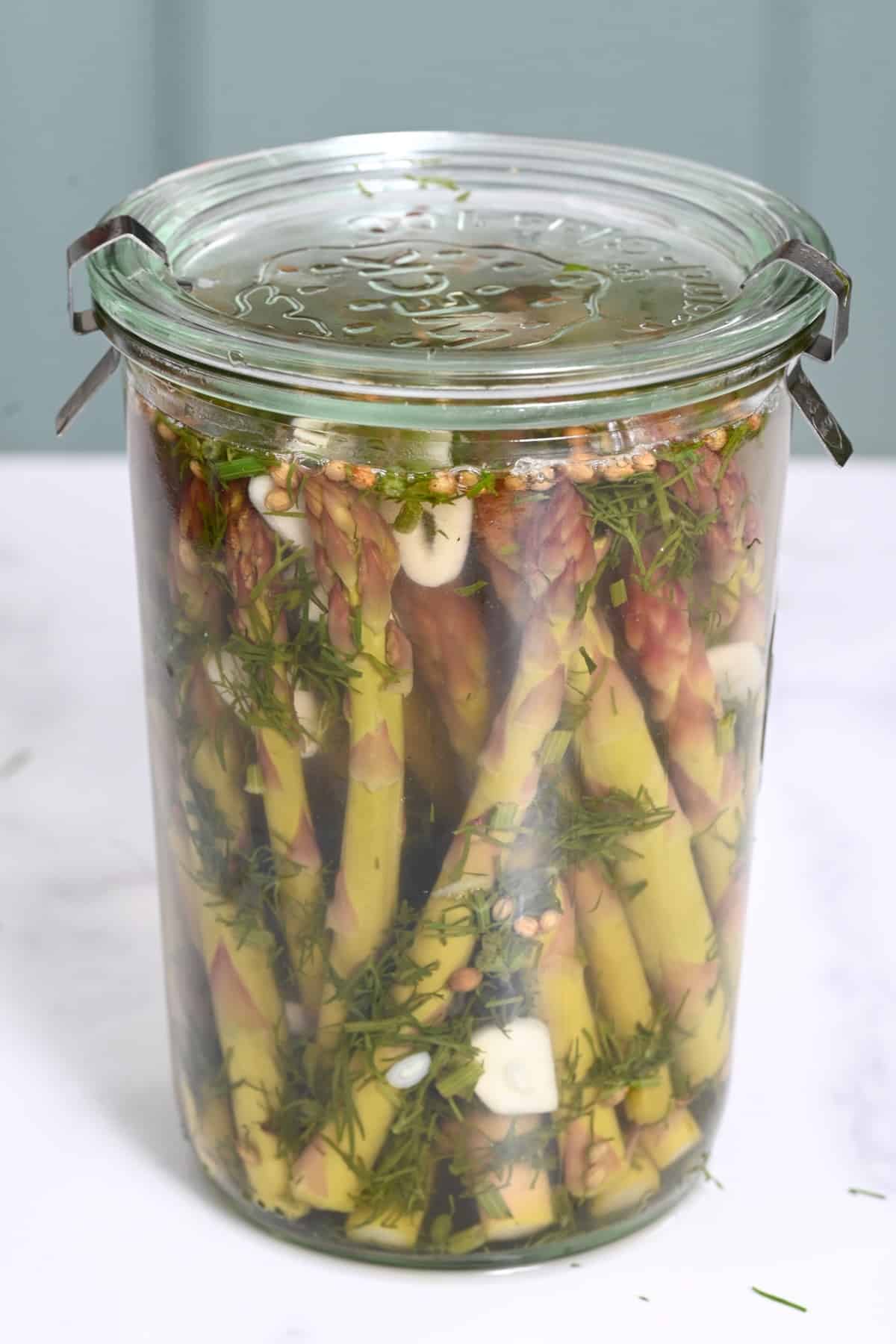
FAQs
The brine mixture is likely off – asparagus that isn’t canned properly goes soft and loses its flavor. If your asparagus pickles are soft, you probably don’t have enough salt.
This is because the asparagus is dehydrated. The acid in the brine can remove water from the veggie making it look shriveled. Leave it in the refrigerator and it should rehydrate.
Yes! Stored properly in the fridge, your asparagus pickles will keep for much longer than if left on the counter, though you will lose some texture over time.
Your asparagus pickles will keep in the fridge for up to 2-3 months. But they’re best enjoyed within a month of pickling.
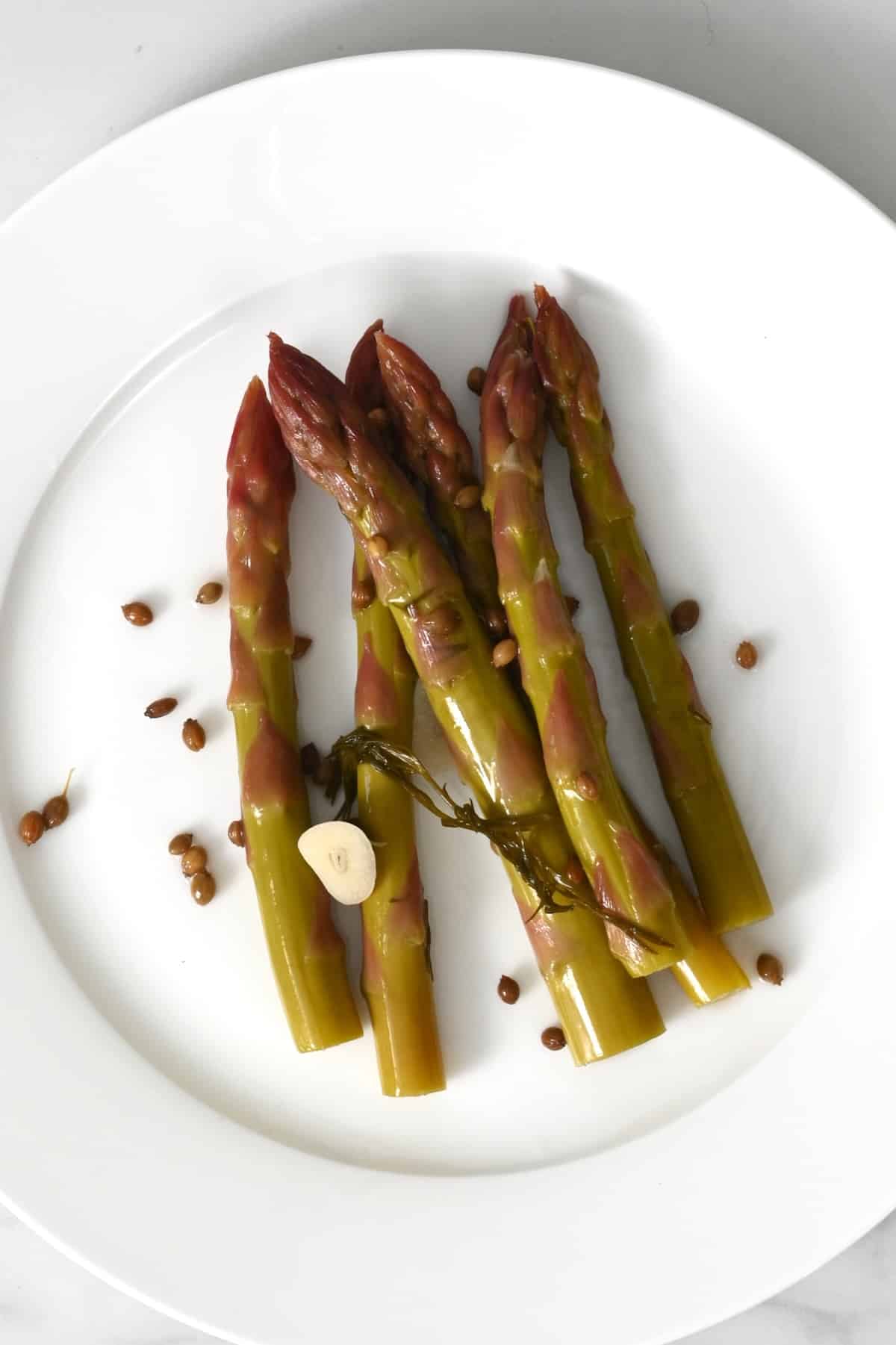
More Pickled Vegetables
- Refrigerator Pickled Green Tomatoes
- Preserved Lemons (Pickled Lemons)
- Pickled Garlic (Plain and Spicy Pickled Garlic)
- Homemade Pickled Jalapeños
- Pickled Red Onions (Pink Onions)
- Crunchy Pickled Okra (Canning & Preserving)
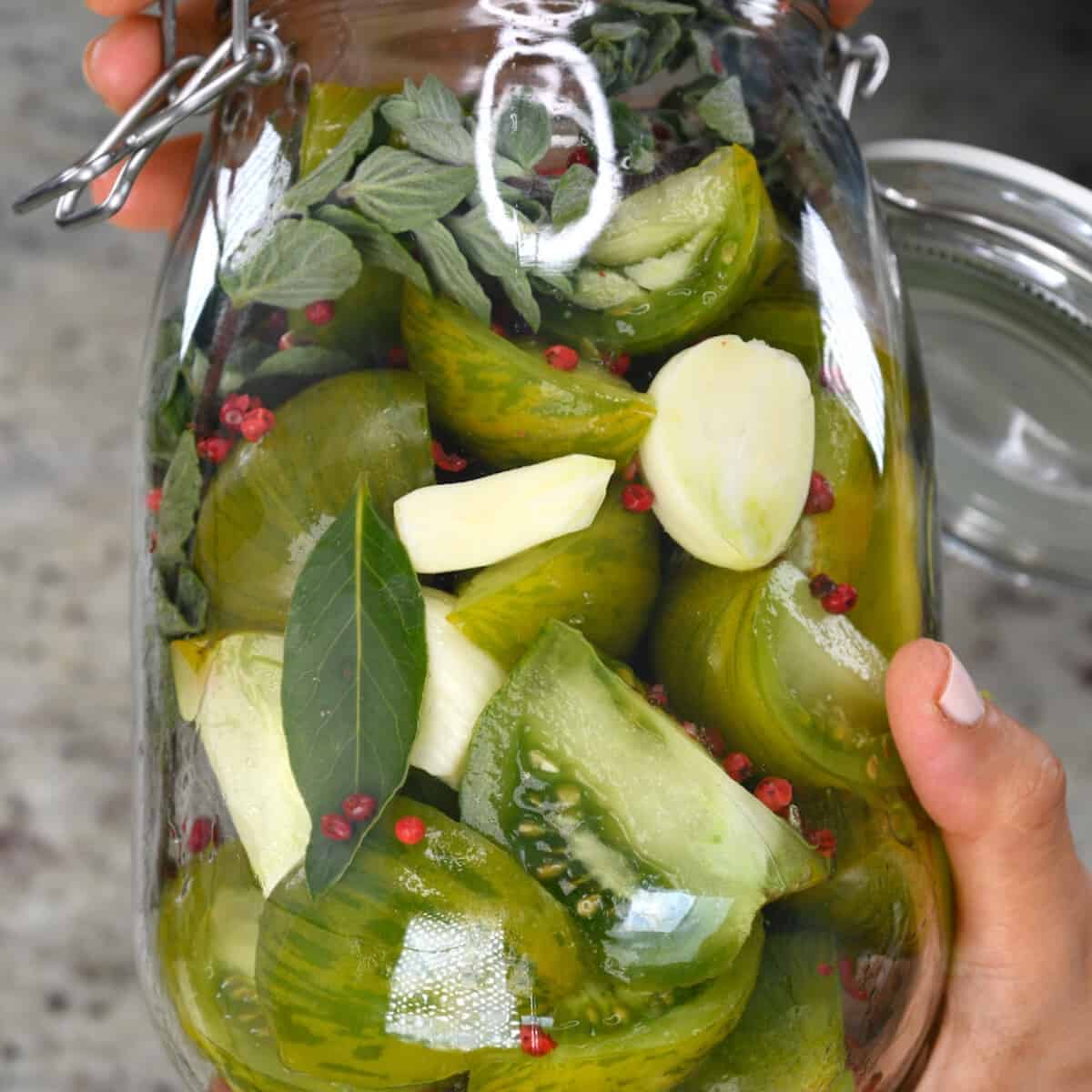
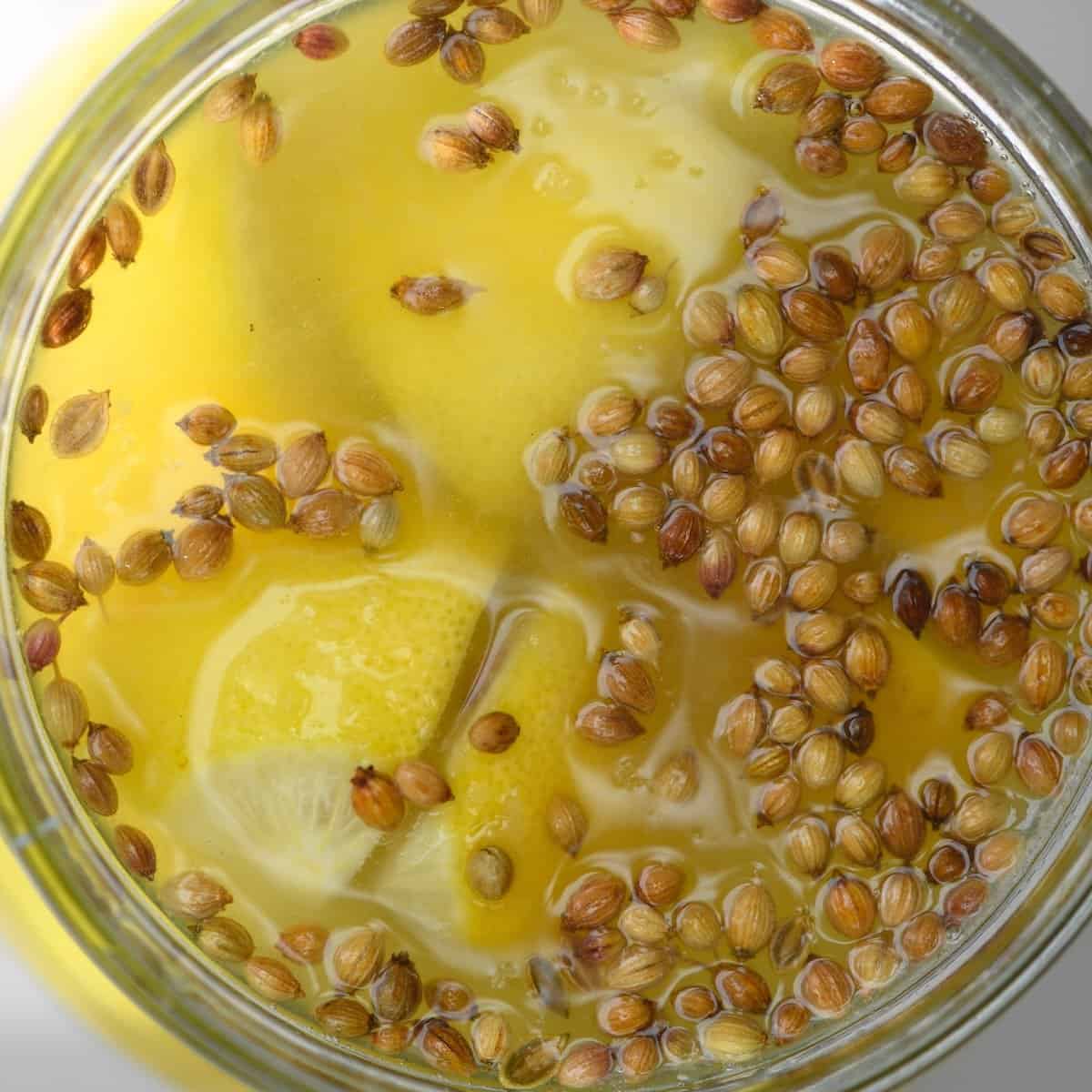
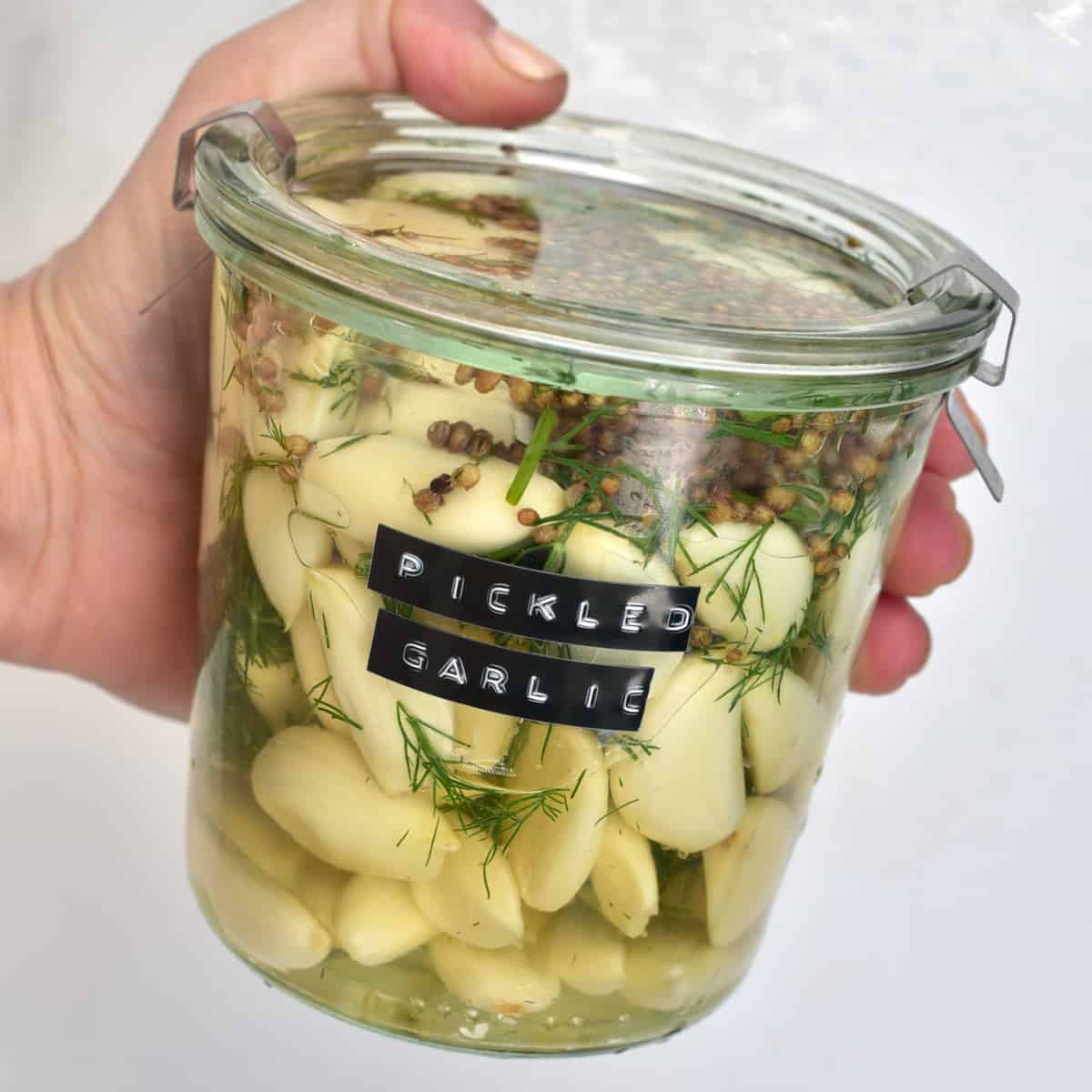
If you try this recipe, I’d love to hear your thoughts/questions below. Also, I’d appreciate a recipe card rating below, and feel free to tag me in your recipe recreations on Instagram @Alphafoodie!
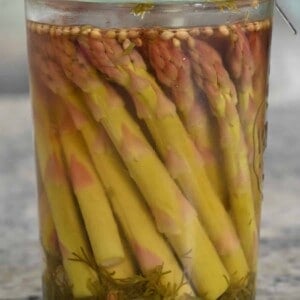
Quick Pickled Asparagus
Equipment
- 1 Glass jars 16 oz/500 ml; with a lid
Ingredients
- 1 lb asparagus fresh
- 5 cups ice water 4 cups cold water + 1 cup ice
For the Brine:
- 1 cup white vinegar distilled vinegar or spirit vinegar
- 1 cup water
- 1 tsp pickling salt canning salt/preserving salt
- 1.4 oz sugar 3 Tbsp
- 0.3 oz garlic 2 cloves
- 1/2 Tbsp coriander seeds
- 0.7 oz dill optional
Instructions
Prepare the Asparagus
- Trim the woody ends of the asparagus, then cut again into identically sized spears. You should cut them just a little shorter than the inside height of your jar so they fit perfectly and are not crushed.
- Place the asparagus spears into a large bowl of ice water for 20 minutes.
- In the meantime, clean and sterilize your mason jar. Preheat the oven to 325ºF/160ºC. Wash the jar in hot, soapy water, rinsing it well. Then, taking away all rubber, plastic, and other non-heatproof elements, place the jar(s) onto a clean oven tray and heat for 10-15 minutes until dry.
Prepare the Brine
- Thinly slice the garlic and chop the dill and other fresh herbs, if using. Set aside.
- In a saucepan, mix the water, sugar, vinegar, and pickling salt and bring to a soft boil over medium-high heat. Reduce the heat and boil gently for 5 minutes. Stir occasionally to make sure the salt and sugar are dissolved.
- Add the asparagus spears and return to the boil. Boil for 2 minutes, then remove from the heat. Note: The asparagus will change color – this is normal.
- Add the dill, sliced garlic, and coriander seeds. Mix gently so you don't break the asparagus spears.
For Quick Pickled Asparagus
- Place your asparagus spears into the sterilized jar. Put as much of the dill and garlic into the jar as you can. Then, fill with the brine / pickled liquid – leaving some headspace at the top.
- Set aside to cool to room temperature, then cover and refrigerate. I recommend waiting at least a few hours before you enjoy the pickles – but you can eat straight away. Keep the asparagus pickles in the fridge for up to 1 month.If you want to water bath can this pickled asparagus recipe, follow the steps on the blog post.
Notes
Nutrition
Nutrition information is automatically calculated, so should only be used as an approximation.

